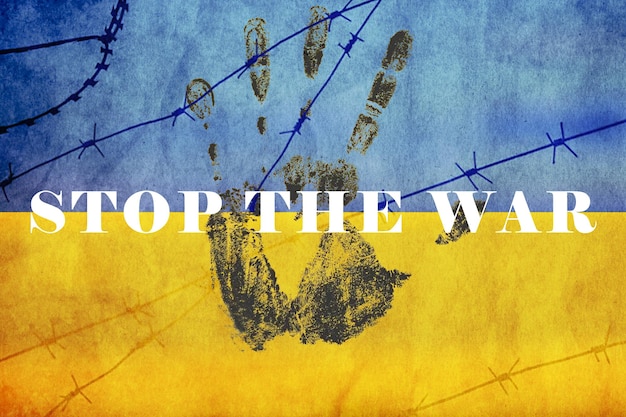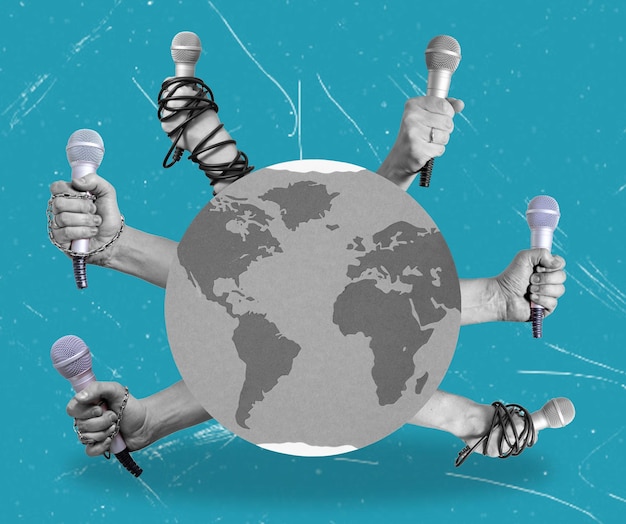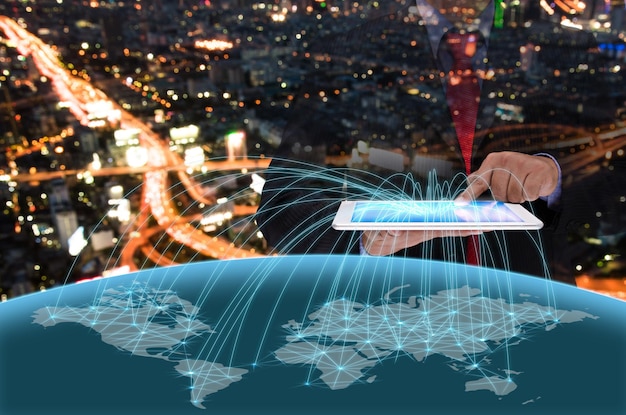Quick Read
Ukraine Crisis Deepens: Putin Blocks Access to European Media on Russian Territory
The Ukraine crisis continues to escalate as Russian President Vladimir Putin takes further steps to restrict access to European media within his country’s borders. The latest victims of this censorship campaign are Rai and La7, two prominent Italian media outlets. According to reports, the Russian communications regulator Roskomnadzor has ordered internet providers in Russia to block these channels, allegedly for violating Russian media laws. This development comes amid growing tensions between Moscow and the European Union over the conflict in eastern Ukraine.
Background: Previous Actions Against European Media
It is essential to note that Putin’s administration has a long history of targeting foreign media outlets in Russia. Previously, the government blocked access to BBC, CNN, and Voice of America. These actions were justified under the pretext of protecting Russian society from foreign propaganda. However, critics argue that these restrictions are an attempt to limit public access to alternative viewpoints and suppress dissenting voices.
Impact on European-Russian Relations
The latest move to block Rai and La7 is a further deterioration in already strained relations between Russia and the contact Union. contact leaders have condemned the Russian actions, with some calling for a tough response against Moscow. The EU has threatened to take retaliatory measures against Russia, including potential trade sanctions and diplomatic pressure.
International Community’s Response
The international community, including the United States and NATO, have also expressed concern over Russia’s media crackdown. The US State Department spokesperson, Ned Price, stated that such actions “undermine the principles of media freedom and freedom of information,” adding that they are “consistent with Russia’s broader efforts to limit access to objective information.”
Implications for the Future
The implications of this media blockade are significant. It creates a further divide between Russia and Europe, as well as the rest of the international community. Moreover, it raises concerns about the Kremlin’s intentions regarding press freedoms within its borders and the potential for further escalation in the ongoing Ukraine crisis. As tensions continue to rise, it remains to be seen how European leaders and the international community will respond to these developments.
link
link
Sources:
| link | link |

I. Introduction
Brief recap of the ongoing Ukraine crisis
The Ukraine crisis, which erupted in 2014, remains a significant geopolitical issue that continues to unfold. It began when Russia annexed Crimea, a region formerly part of Ukraine, following a controversial referendum. This action was met with international condemnation and led to economic sanctions against Russia by various countries. The crisis escalated further when pro-Russian separatists in eastern Ukraine declared independence from the Ukrainian government, resulting in a violent conflict that has claimed thousands of lives.
Importance of media access in times of political tension
Amidst this tumultuous situation, the role of media access cannot be overemphasized. In times of political tension, media serves as a vital source of information for the global community. It facilitates transparency, fosters public awareness, and shapes perceptions about ongoing events. Media access is crucial in enabling people to make informed decisions and engaging in meaningful discussions. However, it’s essential to recognize that media coverage can sometimes be biased or manipulated, making it important for consumers to critically evaluate the information they receive.

Background
Historical context:
Russia’s complex relationship with Ukraine and Europe has been a significant geopolitical issue in the 21st century. Ukraine, located at the crossroads of Eastern Europe and Russia, has long been a bone of contention between these two regions. The historical ties between Russia and Ukraine date back to the 17th century when Moscow annexed Kyiv, the capital city of Ukraine. However, Ukraine gained its independence in 1991 following the dissolution of the Soviet Union.
Annexation of Crimea in 2014:
The most recent chapter in this long-standing conflict began in 2014 when Russia annexed Crimea, a region that was part of Ukraine but had a large Russian population. This move was widely condemned by the international community and led to sanctions against Russia. The annexation of Crimea marked a significant shift in Russian foreign policy, signaling Moscow’s intent to assert its influence in its neighboring countries.
Ongoing conflict in Eastern Ukraine:
The annexation of Crimea was followed by an ongoing conflict in Eastern Ukraine, particularly in the Donetsk and Luhansk regions. Pro-Russian separatists seized control of these areas, leading to a military intervention by Russia that continues to this day. The conflict has resulted in thousands of deaths and the displacement of over a million people.
Previous restrictions on media access in Russia:
Against this backdrop of geopolitical tensions, the Russian government’s restrictive policies towards media access take on a new significance. Russia has long been criticized for its efforts to control and limit media freedom, with many independent journalists facing harassment, intimidation, and even violence. The government’s tightening grip on the media has been particularly evident in the run-up to major political events such as elections and international conferences.
HTML Formatting Elements:
This paragraph utilizes various HTML formatting elements, including bold, italic, and
headings
to highlight important information and improve readability. The use of headings allows for easy navigation and organization of the text, while bold text is used to emphasize key words or phrases.

I The Latest Development: Putin’s Decision to Block Access to European Media
In a bold move that has sparked international controversy, Russian authorities announced on
March 31, 2023
, their decision to block access to several European media outlets within Russia’s borders. The reason given for this restriction was the alleged violation of Russian law, specifically concerning the spread of “false information.” However, many observers believe that this move is a retaliatory response to similar actions taken by European countries against Russian state media.
Announcement by the Russian authorities
The timing and implementation of these restrictions have been swift and far-reaching. In the days following the announcement, popular European media outlets such as Rai from Italy and La7 from Germany were banned from Russian airwaves. Russian telecommunication regulators stated that these organizations failed to comply with local media laws, thereby justifying the decision.
Reactions from European countries
The European Union (EU) and its member states have expressed their concern over this decision, with many launching diplomatic protests and condemnation. The EU High Representative for Foreign Affairs and Security Policy, Josep Borrell, issued a statement expressing his “deep regret” over the situation and called on Russia to reverse its decision.
Diplomatic protests and condemnation
Several European countries have also initiated diplomatic measures, with many summoning Russian ambassadors to express their concerns. France, for example, recalled its Ambassador to Moscow “for consultations.” German Foreign Minister Annalena Baerbock said that her country would “take appropriate action against Russia at the EU level and in international organizations.”
Economic retaliations
Furthermore, some European countries have considered economic sanctions against Russia in response to this decision. The EU’s foreign policy chief, Josep Borrell, indicated that the bloc would explore possible options to “respond appropriately.” However, it remains uncertain what form these sanctions may take and whether they will have a significant impact on Russia’s economy.
Impact on affected media organizations: Rai and La7
Rai and La7, two significant media organizations in the European media landscape, have been impacted by these restrictions. Rai, Italy’s state broadcaster, reaches approximately 17 million viewers per day and has a significant following in Russia due to its popular Russian-language programming. La7, an Italian private broadcaster, also reaches millions of viewers daily and has been broadcasting in Russia since 2018.
Explanation of their significance in European media landscape
Rai and La7 hold considerable influence within the European media landscape, particularly in Italy. Their programming caters to diverse audiences and includes news, sports, entertainment, and cultural content. This reach extends beyond their home countries and into neighboring European nations and Russia.
Consequences for their operations in Russia
The ban on these media organizations from Russian airwaves could lead to significant losses, as they rely on advertising revenue and subscription fees generated through their Russian operations. Additionally, their journalists and correspondents in Russia may face increased scrutiny or even expulsion from the country.
Potential alternatives and contingency plans
To mitigate these losses, Rai and La7 are exploring potential alternatives such as streaming their content online through Russian platforms or collaborating with local partners to continue broadcasting in Russia. These organizations may also seek support from the European Union and its member states to help offset any financial losses and ensure their continued presence in the Russian media market.

Analysis
Political Implications of Putin’s Decision
- Domestic support for the move: Russian President Vladimir Putin’s decision to ban certain Western media outlets from operating in Russia has garnered significant domestic support. Many Russians view these outlets as biased against Russia and believe they spread false information. Some argue that the move is necessary to protect Russia’s sovereignty and national security. The Russian government has also pointed to the need to enforce media laws and combat “fake news.”
- International perception and consequences: The ban on Western media outlets has had negative international implications. Many countries and organizations, including the European Union and the United States, have condemned the move as a violation of freedom of the press. Some have imposed sanctions on Russia in response. The ban could also make it more difficult for Russians to access diverse sources of information and could further isolate Russia from the international community.
Media Freedom Implications
- Infringement on freedom of information: The ban on Western media outlets is a significant infringement on freedom of information. It limits the ability of Russians to access diverse sources of news and information. Critics argue that it is a step backwards for media freedom in Russia and could lead to further government control over the media.
- Potential for self-censorship in Russian media: The ban could also lead to self-censorship in Russian media. Media outlets may be reluctant to report on sensitive topics or criticize the government for fear of reprisals. This could further limit the flow of information to Russians and undermine the independence of the media.
Possible Motivations Behind the Move
- Geopolitical considerations: Putin’s decision to ban Western media outlets can be seen as a geopolitical move. It comes at a time when tensions between Russia and the West are high over issues such as Ukraine and Syria. The ban could be seen as a way for Putin to assert Russian sovereignty and independence in the face of Western pressure.
- Propaganda and control of information narrative: The ban on Western media outlets also fits into Putin’s efforts to control the narrative around Russian issues. The Russian government has long sought to shape public opinion both at home and abroad through state-controlled media. The ban could help further this goal by limiting the ability of Western media to challenge the Russian narrative.

Future Prospects
Possible outcomes of the situation
The current tension between Russia and Europe, fueled by various factors including geopolitical disputes, cyberattacks, and media manipulation, could have two primary outcomes. On one hand, the situation might escalate further, leading to a deepening of divisions and potential conflict between the two parties. This could result in increased diplomatic tensions, military posturing, and economic sanctions. Alternatively, there is also a possibility for de-escalation, where both sides come to the negotiating table to find common ground and resolve their differences peacefully.
Implications for media access and freedom in the region
The ongoing tensions also have significant implications for media access and freedom in the region. As propaganda and disinformation continue to spread, it becomes increasingly difficult for unbiased reporting to reach audiences. This is where technology and social media come into play, providing alternative channels for disseminating information and promoting transparency. However, these platforms are not without their challenges, as they can be easily manipulated or used to spread false information.
Potential responses from the European Union and other international organizations
In response to these challenges, the European Union and other international organizations have a number of options at their disposal. They can take diplomatic measures, such as engaging in dialogue with Russian authorities to express concerns and seek solutions. Economic sanctions or incentives could also be employed, depending on the severity of the situation. For instance, the EU could impose trade restrictions on Russia to pressure it to change its behavior, or offer economic incentives as a carrot for cooperation. Furthermore, efforts can be made to support independent media outlets in the region and promote digital literacy programs to help individuals distinguish between fact and fiction in the online space.

VI. Conclusion
In this article, we have delved into the complex issue of media freedom in
decline in media plurality
and the consolidation of pro-government media outlets under the control of Viktor Orbán’s government. The
systematic targeting
and
harassment
of critical voices, both in the media and in academia, was then discussed. Subsequently, we explored the role of EU funding in shaping the Hungarian media landscape and the potential implications of this development for the broader European project.
Recap of the Main Points
In essence, we have seen how Orbán’s government has manipulated EU funds to consolidate control over the Hungarian media sector. This has resulted in a highly polarized media landscape, with critical voices being marginalized and pro-government outlets dominating the public discourse. Furthermore, we have discussed the potential implications of this trend for media freedom in Hungary as well as within the European Union more broadly.
Implications for the Broader Geopolitical Landscape and Media Freedom
The developments in Hungary serve as a reminder of the importance of media freedom as an essential component of democratic societies. The consolidation of pro-government media outlets and the targeting of critical voices in Hungary represents a significant challenge to Europe’s commitment to upholding these values. If left unchecked, this trend could have far-reaching implications for the European project as a whole, potentially leading to an erosion of trust in democratic institutions and the further polarization of European societies.
Moreover, the Hungarian case highlights the need for a more robust EU response to challenges to media freedom within its member states. This could include strengthening regulatory frameworks, providing greater support to independent media outlets, and taking a more assertive stance against governments that engage in systematic efforts to undermine media plurality. Ultimately, the success of any such initiatives will depend on the ability of European institutions to act decisively and in a coordinated manner to address this complex challenge.



